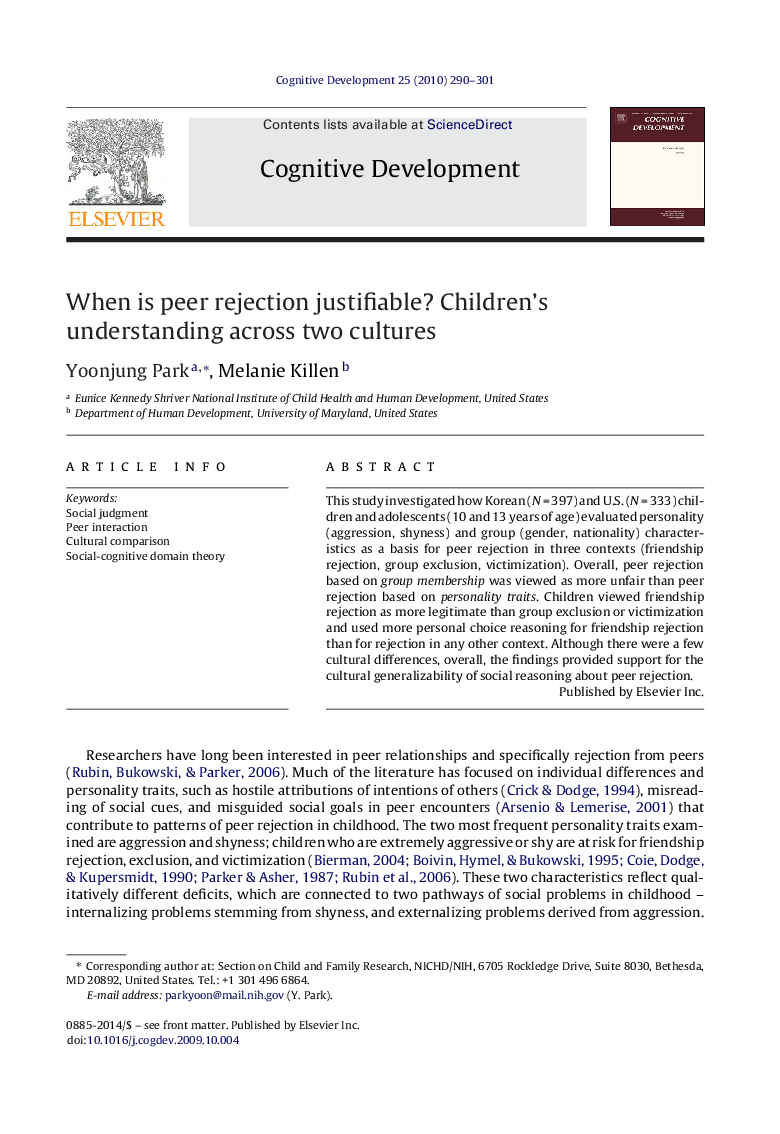| کد مقاله | کد نشریه | سال انتشار | مقاله انگلیسی | نسخه تمام متن |
|---|---|---|---|---|
| 916650 | 918874 | 2010 | 12 صفحه PDF | دانلود رایگان |

This study investigated how Korean (N = 397) and U.S. (N = 333) children and adolescents (10 and 13 years of age) evaluated personality (aggression, shyness) and group (gender, nationality) characteristics as a basis for peer rejection in three contexts (friendship rejection, group exclusion, victimization). Overall, peer rejection based on group membership was viewed as more unfair than peer rejection based on personality traits. Children viewed friendship rejection as more legitimate than group exclusion or victimization and used more personal choice reasoning for friendship rejection than for rejection in any other context. Although there were a few cultural differences, overall, the findings provided support for the cultural generalizability of social reasoning about peer rejection.
Journal: Cognitive Development - Volume 25, Issue 3, July–September 2010, Pages 290–301